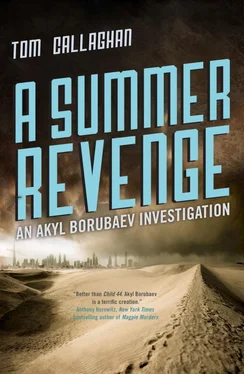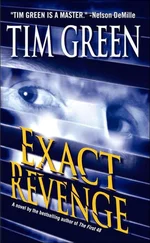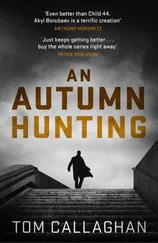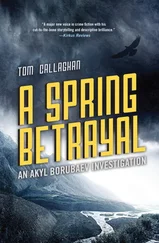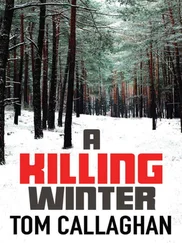As far as I could tell, the crowd was much the same as before, a mix of African, Chinese and Russian women, all smoking, all looking bored. Most of the Russian women were really Ukrainian or from the republics of the former USSR, but Natasha had told me they tried to drive up the price by claiming to be from Moscow. They all seemed to take great pride in elaborate tattoos and push-up bras under T-shirts too tight to hide their bellies, plus jeans with ripped legs that revealed pallid bulging flesh.
I couldn’t help contrasting the fast-food flab and beer bellies with Saltanat’s smooth, toned body, remembered her breath hot on my neck, her nails drawing a metro map on my back. I’d seen too many working girls when I was assigned to Vice in Bishkek to be under any illusions, but I guessed most of these girls were hooking to support parents, children, or simply to try to escape from poverty back home. All relatively admirable, I suppose, if the only thing you’ve got to sell is half an hour in the back seat of a car or a fleapit hotel, and the electricity bill is overdue.
I managed to order an orange juice, then I heard a familiar voice.
“I want a Bullfrog. You buy me one?”
Lin, the prostitute I’d met when Kulayev first brought me to the bar. Still with a smear of lipstick, this time dark brown, on her front teeth.
I shook my head. With Kulayev dead, I was running out of money and with no way to get anymore. Besides, I didn’t think Lin would have any information about where Natasha was being held.
“You’re still looking for a Kyrgyz woman? Why, when I’ve got the tightest pussy on the planet?”
I sighed; I could have lived without the constant sales pitch.
“Lin, I think you’re very attractive, very sexy, but right now I may be the only guy in the bar who doesn’t want to take you home.”
Lin pouted, and the effect was to make her look suddenly older, worn, shop-soiled. I know that it’s a hard life working the bars, although not as hard as being out on the streets, walking up and down Ibraimova, posing under the rare streetlights, waiting for a car’s headlights to flash on and off.
In a sudden burst of sympathy, I relented and ordered a Bullfrog from one of the waitresses. Lin stood closer to me, smiling that dead-eyed smile, running her tongue over her lips in a grotesque parody of desire. I could smell the cheap tobacco on her breath, the garlic and ginger and nam pla of her most recent meal. Her breasts nudged my arm like small children trying to attract my attention.
“So you do like me?” she said, pitching her voice lower.
“I’m sure you’re a very nice person,” I said, my impulse toward generosity rapidly wearing thin.
“Where is your friend? He was very hot for me.”
Not as hot as he finally got, thanks to me, I thought, but simply shrugged.
“No idea,” I said, and since I didn’t know where the city morgue was, I was even telling the truth.
We stood without speaking for a few moments, and I watched Lin make short work of her cocktail. Finally she put her mouth to my ear, said something that was drowned out by the music. She repeated what she said, but still I couldn’t hear. Finally, with a look of annoyance on her face, she took my arm and half-dragged me out of the bar, through the lobby and into the night, the heat still sticky and oppressive even at that late hour.
“That Kyrgyz lady you were looking for, you ever find her?”
I nodded.
“And lost her again, I’m maybe thinking?”
I shrugged, noncommittal.
“I can maybe help you find her again,” Lin said, her voice suddenly serious, “for the right price.”
She rubbed her thumb and fingers together in the universal symbol for money. I wondered whether this was yet another scam, if Jamila and Lev weren’t the only ones out to lie and rob. But I didn’t know what I had to lose by accepting her help. After all, I was on the back foot, waiting for the Chechen to call, or not. So I gave Lin a hesitant nod, gave her my number, told her not to expect cash without results. She nodded, beckoned me back into the bar. I shook my head, gestured to one of the waiting cabs, gave the driver the address of my hotel.
I’d had my fill of excitement for one day.
I’d almost reached my hotel when some instinct told me to go back to the building site. Maybe I realized that I’d left the dead man’s Glock there, and it would make an excellent backup to the Makarov. Maybe there would be some clue to the Chechen’s identity, or a hint of where he might be staying. And perhaps I felt bad about leaving a body there for the laborers to find in the morning, swollen and decaying in the heat. Not for the first time, I wondered if I was getting too old for the job.
I paid the taxi off when we got there, waited until he’d driven off, then pushed my way through the hoardings once more. The pool of blood was still there, black in the moonlight, crusting over and staining the sand. But there was no trace of the body.
I crouched down, touched the blood with my forefinger. Sticky but still liquid. Standing up, I heard my knees creak, reminding me that I was no longer a young, enthusiastic recruit to the police force. Sometimes I wondered if I ever had been, or if that was a false memory.
Someone must have moved the body, and if it had been found, the site would have been surrounded by police cars, arc lights, scene-of-crime forensic officers. The obvious conclusion was that the Chechen had returned and collected his fallen comrade. If so, why hadn’t he scattered the sand, covered up the blood?
It was then that I heard a noise coming from the entrance to the building. A harsh, sour wheezing, thick, wet coughing and sobbing. The sound of someone in terminal pain. I remembered how, in the days before Chinara’s death, she had made just such a noise, turning my heart sick with anguish at my inability to help. And when I finally plucked up the courage to help her on her journey, it was only to spare her the last few moments of agony.
It was then that I noticed furrows in the sand, as if something had been dragged back into the building. Two furrows, made by heels, leading into the darkness.
I followed them, reluctant but needing to know their significance. The furrows ended at the concrete steps leading into the lobby. It was so dark inside that I paused to let my eyes adjust to the moonlight shining through the glass doors piled against the wall, ready to be installed. I started up the stairs once more, wondering if that was where the body had been dumped.
Then, as I looked up, a figure appeared at the top of the stairs, mouth gaping in a voiceless scream. As it toppled toward me, I saw the blood splash against the walls, jetting in spasms from a half-severed neck. Even as I stepped back, the figure grabbed at me, threw its arms around my neck in a hideous parody of friendship, blood drenching my shirt in seconds.
And as we fell backward, a patch of moonlight showed me the face pressed close to mine.
It was my own but greatly changed.
Dreams have great importance to Kyrgyz people, even city-bred ones like me. For the people in the villages, it seems only proper to view the vastness of the mountains as affecting everyday thoughts and actions. Earthquakes become warnings, avalanches act as punishments. These are the old ways, the old gods, whose sacred trees and rocks are remembered from generation to generation, although rarely talked about. The manaschi , the men who recite our poetry, do so in a trance, often claiming to be inspired by dreams. Perhaps when you live in a small country where both summer and winter can be equally brutal in different ways, the gap between the everyday world and the realm of the spirits is narrower than most.
Читать дальше
